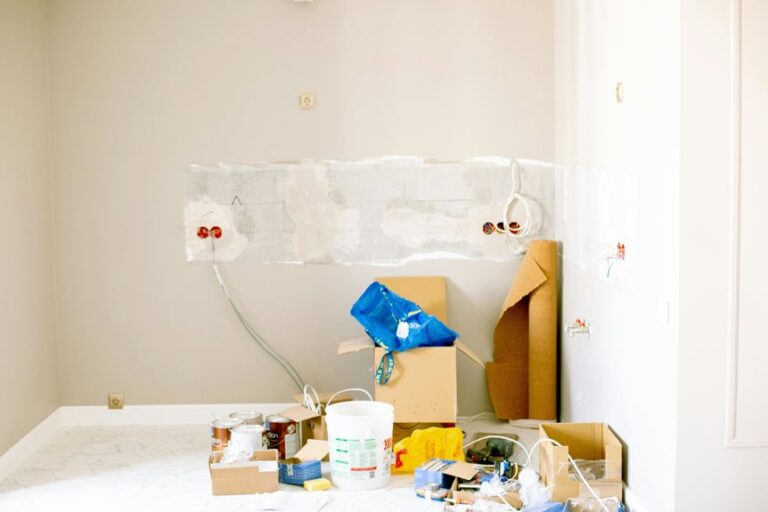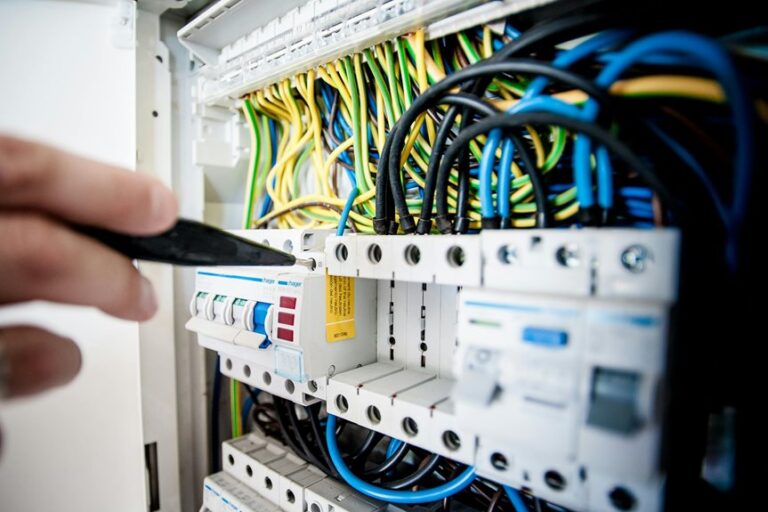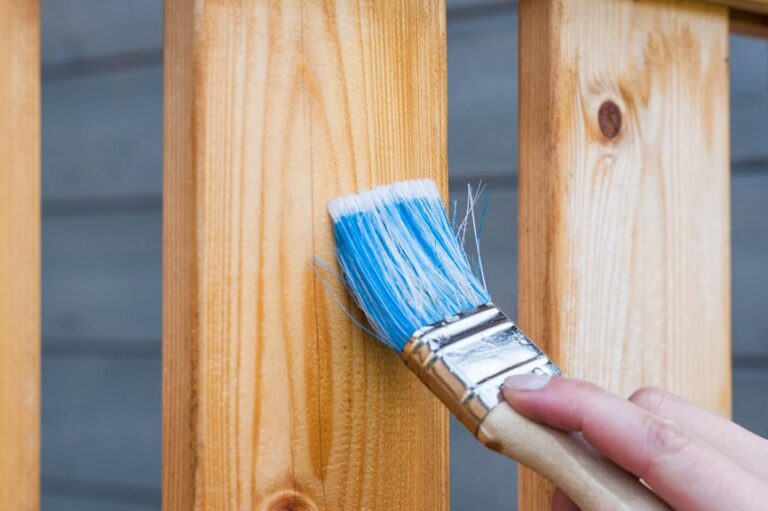Just like a well-tuned machine, your electrical system requires regular checks to guarantee peak performance and safety. You might not realize it, but minor issues can lead to significant hazards, including electrical fires or costly failures. Conducting these inspections isn't just about compliance; it's about safeguarding your property and enhancing its value. So, what exactly do these inspections entail, and how frequently should they be conducted to maximize their benefits? Understanding this could make all the difference in maintaining a safe environment.
Importance of Electrical Inspections
Electrical inspections are essential for ensuring your home's safety and functionality. By having regular inspections, you identify potential issues before they escalate into costly repairs or dangerous situations.
Licensed electricians examine your wiring, outlets, and panels, ensuring everything meets current codes and standards. This proactive approach not only protects your home but also enhances its value.
You'll benefit greatly from these inspections by minimizing the risk of electrical failures. They help detect overloaded circuits, faulty wiring, or outdated systems that mightn't handle today's energy demands.
Regular inspections can also improve the efficiency of your electrical system, potentially lowering your energy bills.
Moreover, if you're planning any renovations or adding new appliances, an inspection can guide you on any necessary upgrades or adjustments to your system.
Knowing your electrical system's condition gives you peace of mind, especially in older homes where hidden issues may lurk. Additionally, finding qualified electricians is crucial to ensure that your inspections are thorough and reliable.
Common Electrical Hazards
Identifying common electrical hazards is crucial for maintaining a safe environment in your home. One of the most prevalent issues is overloaded circuits, which occur when too many devices draw power from a single circuit. This can lead to overheating and potentially cause a fire.
You should also watch for frayed or damaged wiring, as this can expose live wires, increasing the risk of electric shock. Additionally, using appliances with damaged cords poses a significant hazard. Inspect your cords regularly for any signs of wear or damage.
Another danger is improper grounding; verify that all outlets, especially in wet areas like kitchens and bathrooms, are properly grounded to prevent shock hazards. Inadequate use of extension cords can also create risks. Over-reliance on these cords can lead to overheating and increased fire risk.
Finally, be aware of outdated electrical systems that may not meet current safety standards. If your home hasn't been updated, it could be time to reflect on an electrical upgrade. Regular maintenance by top electricians can help ensure your home remains safe and up to code.
What Inspections Include
A thorough electrical safety inspection includes several critical components designed to guarantee your home is safe and up to code. During the inspection, a qualified professional will evaluate various aspects of your electrical system, confirming that everything functions properly and safely.
| Inspection Component | Description |
|---|---|
| Wiring Assessment | Checks for frayed, damaged, or outdated wiring. |
| Circuit Breaker Review | Verifies that circuit breakers are correctly rated and operational. |
| Grounding System Check | Confirms grounding systems are intact and effective. |
Additionally, the inspector will look for proper labeling of circuits, making sure that all electrical panels are easily accessible and organized. They'll also test GFCI outlets to confirm they trip correctly, reducing the risk of electrical shock. The inspection may include evaluating light fixtures and switches for wear or malfunction, as well as examining any visible connections for signs of overheating or corrosion. By addressing these components, you can mitigate potential hazards and improve the overall safety of your electrical system. Being proactive about inspections confirms that your home remains a secure environment for you and your family. Regular inspections by expert electricians can help you identify issues before they become major problems.
Frequency of Inspections
Regular inspections are vital to maintaining the safety and functionality of your electrical system. The frequency of these inspections depends on various factors, including the type of facility, usage patterns, and local regulations.
Generally, it's advisable to conduct inspections at least once a year for residential properties. However, if your home features high-demand electrical systems or has undergone significant renovations, more frequent inspections may be warranted.
For commercial properties, you should schedule inspections more frequently—typically every six months or even quarterly—depending on the nature of the operations and the complexity of the electrical systems in use.
Industries with heightened electrical risks, such as manufacturing or healthcare, may require monthly evaluations to guarantee compliance with safety standards.
In addition to scheduled inspections, it's important to perform routine checks after any significant electrical work, such as installations or repairs.
Keeping a maintenance log can help you track inspection dates and findings, making sure you're up to date with safety protocols.
Benefits of Regular Inspections
When you prioritize regular electrical safety inspections, you're not just complying with regulations; you're also ensuring the safety and efficiency of your electrical systems.
These inspections provide numerous benefits that protect both your property and occupants.
Consider the following advantages:
- Early Detection of Issues: Spot potential problems like frayed wiring or faulty circuits before they escalate into major hazards.
- Reduced Risk of Fires: Minimize the chances of electrical fires by identifying and addressing risks associated with outdated or damaged installations.
- Lower Insurance Premiums: Many insurers offer discounts for properties that maintain a regular inspection schedule, reducing your overall costs.
- Enhanced Energy Efficiency: Identify inefficient systems or components, leading to reduced energy bills and a smaller carbon footprint.
- Increased Property Value: A well-maintained electrical system enhances your property's marketability and overall value.
In addition, hiring qualified electricians in Redlands can ensure that your inspections are thorough and compliant with local codes.
Conclusion
By prioritizing regular electrical safety inspections, you're not just protecting your property; you're fortifying your home against potential disasters. Think of it as a health check-up for your electrical systems, catching issues before they snowball into costly repairs or dangerous fires. With every inspection, you're lighting the path to enhanced energy efficiency and peace of mind. Don't let overlooked hazards linger in the shadows—schedule your inspection and guarantee your electrical systems shine brightly and safely.







